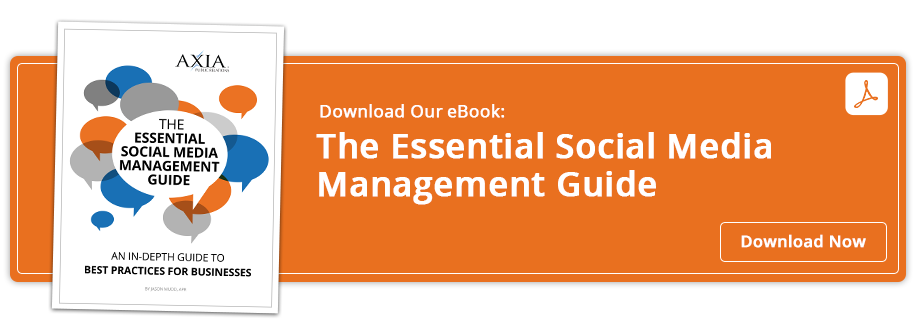 Axia Public Relations Offers Four Guidelines
Axia Public Relations Offers Four Guidelines
When consumers complain on social media, should a company apologize or seek a different solution instead? In an era of highly social, media-driven communication, it seems like every organization is on high alert in preparation for the uncomfortable, dissatisfied vocal minority. But the thing is, you just can't please everyone. Companies recognize that social media opens up a virtual world in which anyone can speak his or her mind — and do so anonymously. That creates fear that often drives the urge for organizations to apologize, sometimes when it isn't really warranted.
Too many companies fear social media. As a society, we are becoming overly sensitive to criticism and excessively accommodating of every person's desires, beliefs and feelings on any given matter. What we forget is that a healthy dose of dissatisfaction helps to highlight areas of weakness where improvements can be made.
While being prepared for a very real crisis is important, concerning yourself with grievances of social media trolls is another story entirely. The truth is, sometimes no apology is needed. If someone is unhappy with a particular service or product and decides to tweet negatively about it, a company can apologize. Or, it can respond, inquire and attempt to remedy.
By responding without an apology, an organization can responsibly take the matter offline and away from the public forum to determine the root cause of the problem. This strategy affords time to properly determine whether or not an apology is necessary.
Here are four guidelines for issuing public apologies:
1. Research the source of the complaint and their reach of influence. Before rushing to apologize, understand the reach and influence of the unhappy party. Online conversations are frequently dominated by a very small, unrepresentative few who communicate often and aggressively. If it is not integral to your business, let things play out without any response or time investment, since those who have little influence will have little impact.
2. Don’t focus on the unfavorable minority. Rather than investing time and energy in a few, put more effort into encouraging a supportive vocal majority. Focusing on your positive constituencies will often lead to more positive results, news, posts and engagement.
3. Elevate and appreciate your supporters. It is much easier to thwart negative reviewers and avoid unnecessary apologies when you have droves of positive supporters to counteract the disapproving handful.
4. Use social media to reinforce positive perception. Companies can use social media to negate misperceptions, while leveraging it as a tool to highlight desired opinions. There's no avoiding the fact that social media is vastly considered the primary vehicle for communication. Therefore it is essential for organizations to establish comfortable, working knowledge of best practices when engaging any audience through social media.
Given the overuse of public apologies, the act of apologizing has become all but inconsequential. Certainly in those infrequent instances of true regret (delivery of erroneous or inaccurate information, deliberate deceptive practices, etc.), an apology should always be considered as a first step.
Axia Public Relations has created a downloadable social media management guide to assist individuals and companies in better understanding the new communication environments. In the guide, they suggest that as a way to mitigate critical social media attacks, organizations should be even louder and more widespread — instead of apologizing — if there has been no wrongdoing.
Topics: public relations, shared media



Comment on This Article